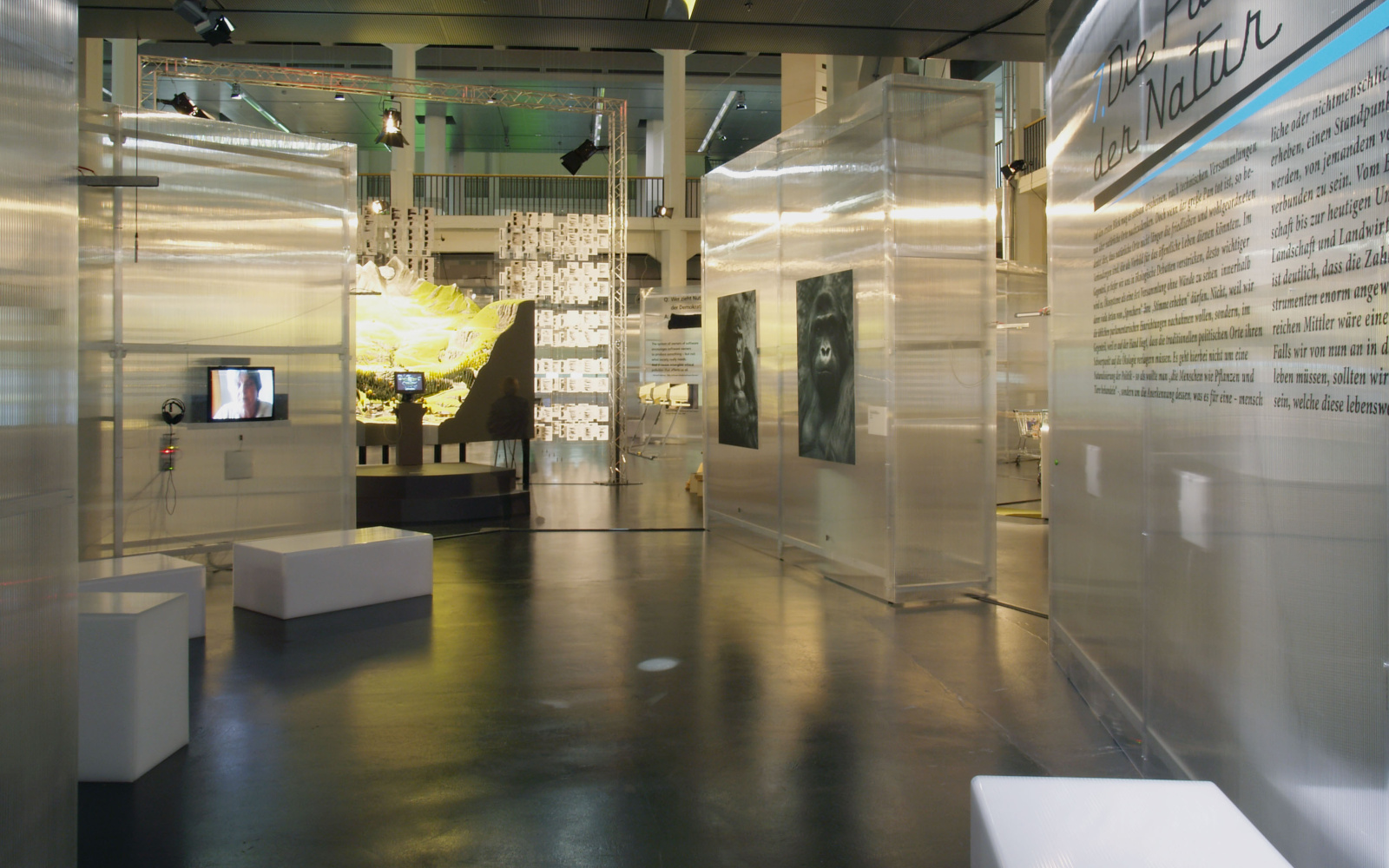Andrew Barry: The Constituents of Europe
Speech on the occasion of the finissage of the exhibition »Making Things Public«, October 2, 2005
But maybe there is a modest - very modest! - but I hope constructive - British contribution to the writing of a new European constitution which might make some amends for the past. The British constitution, of course, is famously not a document at all: it is performed by its interpreters. There are shelves of dreary books on the British constitution, but no text of the constitution itself. Indeed if you look at all the writings on the British constitution you would find that it contains are extraordinarily disparate set of practices, laws and precedents. One thing is apparent. These British constitutionalists have never been that much concerned with Society, or Civil Society - which, after all, are also 'continental' ideas. They are concerned with questions such as whether it is parliament, or the sovereign, or the prime minister is able to do this or that, even though there isn't necessarily a document that clearly says one or the other.
It is easy to dismiss these endless writings on the British constitution. Through their constant appeal to history, precedent, and the Queen of course, the British constitutionalists claim that the British actually don't need a written constitution because their unwritten one is much the superior in the first place. Why write something that really doesn't need writing! Edmund Burke's Reflections on the Revolution in France was a warning to the British that they shouldn't import the bad idea that a constitution was something like a foundation upon which everything else was erected. If it is pretty unclear what the British constitution is, it's also abundantly clear what it isn't. Walter Bagehot, author of one of the most influential 19th century texts on the British constitution, advised that the 'visible experiment [of universal suffrage in France] will not necessarily help the ouvriers'. British constitutionalists have tended to believe that writing things down in the form of a constitution is getting pretty close to revolutionary violence. Deference to authority and what the English like to call 'the great and the good' provided better guarantees of liberty than the security of written constitutions and uncertainties of visible and public experiments.
But if writers on the British constitution don’t talk about society they do sometimes use another word: the constituent. Members of Parliament are 'constituency MPs' - they represent their constituents. Maybe this overused idea of constituent might be useful in rewriting the European constitution. After all, constitutions not only have governing principles, they also have constituents - the things which make them up. Chemical constituents form themselves in their relations and their reactions, making chemistry, above all, an experimental science. So if this were a constitutional convention, and despite the ghastly examples of the 3 B’s - Burke, Bagehot and Blair - maybe there still is a contribution that the British constitutionalists can make to Europe. Perhaps something can still be retrieved from the idea of the unwritten and non-existent British constitution. For what is taken to be and what is not taken to be part of the British constitution for different writers is quite uncertain and open. And thereby open to modification: there is a radical political empiricism lurking behind the writings of Burke, Bagehot and their followers. As this exhibition has so clearly shown the constituents of Europe are there for the making! Despite Burke's warnings, they do participate in public experiments! And they continually raise constitutional questions:
Does it matter, for example, that Prince Charles, heir to the monarchy and the Duke of Cornwall, puts the label ‘Duchy’s originals’ on packets of organic sausages produced from his estates? - thereby confusing the boundaries between sovereignty and marketing! Yes - certainly! Or when activists draw attention to the damage caused by European firms in constructing a dam might this make those affected become European constituents? Why not? The constitution of Europe is transformed all the time. Its constituents increase and decrease in number. In recognition of this, I offer the following addition to the preamble - which I hope would create the possibility of at least some political bridge across the Channel:
PREAMBLE TO THE EUROPEAN CONSTITUTION
1. The term European constitution should be taken to mean how the
constituents of Europe become what they are.
2. The European Union consists of constituencies which come into
being in order to address common problems and injustices.
There is no limit to the number of constituencies or to
constituents. All the constituents of Europe should be enabled to
form themselves into constituencies.
3. The constituents of Europe include, amongst other things, rivers,
persons, buildings, air, machinery, consumer goods, noise,
pollution and animals.
4. The constituents of Europe are bound to vary depending on what
constituents are affected and how and where they come together.
No constituent should be allowed to become a monopoly at any
time. The list of Europeans should not be restricted by any
body or sovereign power.
5. Political life of Europe has never been confined to parliaments and
government offices. The European Union recognises the
importance of maps, models, public meetings, marches, scientific
demonstrations and theatre in giving expression to its
constituents. It affirms the right to political experimentation!
